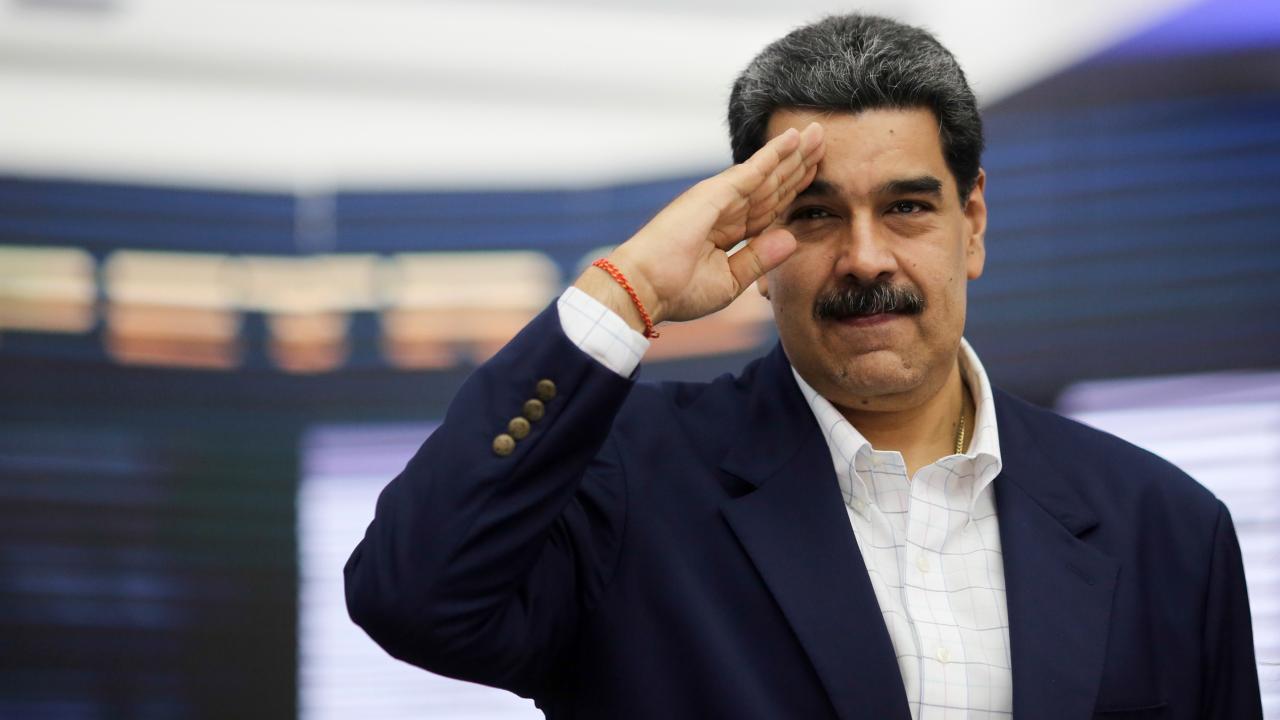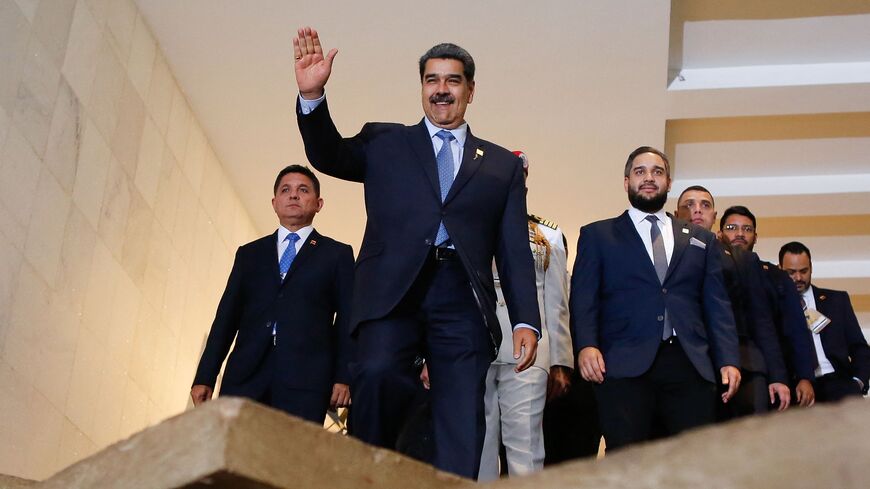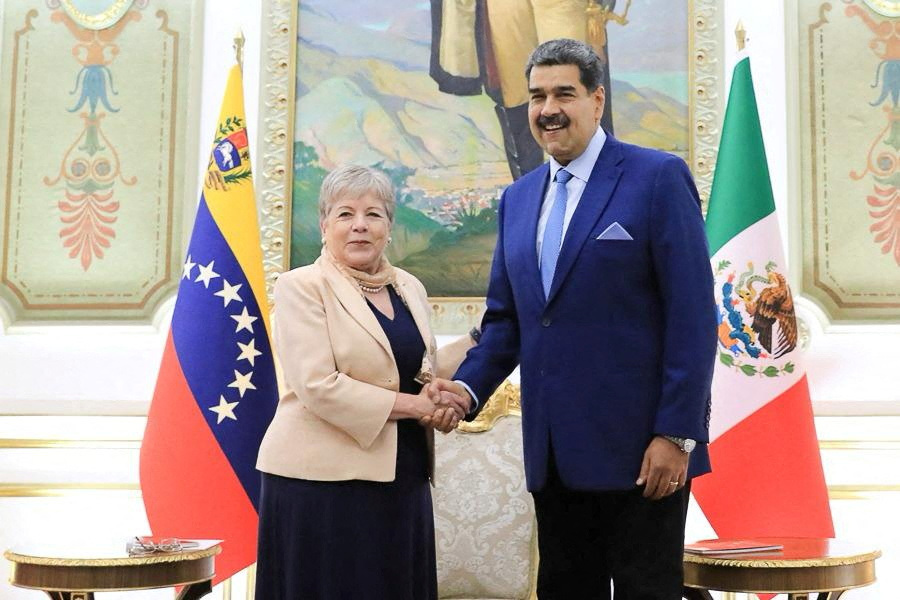Nicolas Maduro: The Complex Legacy of Venezuela's Controversial Leader
Introduction:
Nicolas Maduro, the President of Venezuela since 2013, has been a polarizing figure both domestically and internationally. Ascending to power after the death of Hugo Chávez, Maduro inherited a nation grappling with economic instability, political polarization, and social unrest. This essay explores Maduro's background, rise to power, governance style, and the multifaceted challenges facing Venezuela under his leadership.
Background and Early Political Career:
Born on November 23, 1962, in Caracas, Maduro grew up in a working-class family and was politically active from a young age. He joined the Socialist League while in high school and later became involved in various leftist movements. Maduro's early career included union activism within the bus drivers' union and diplomatic roles in the Venezuelan government, where he cultivated relationships with key figures in the ruling United Socialist Party of Venezuela (PSUV).
Rise to Power:
Maduro's political ascent accelerated under the mentorship of Hugo Chávez, Venezuela's charismatic leader, and founder of the Bolivarian Revolution. As Chávez's foreign minister and vice president, Maduro gained visibility and loyalty within the PSUV. Following Chávez's death in 2013, Maduro assumed the presidency after winning a narrow victory in a contested election against opposition leader Henrique Capriles. His presidency began amidst heightened political tensions and economic challenges.
Governance Style and Policies:
Maduro's governance style has been characterized by a mix of authoritarianism, populism, and economic interventionism. He has pursued policies aimed at consolidating power within the executive branch, including the marginalization of political opponents, the suppression of dissent, and the erosion of democratic institutions. Maduro's government has also implemented a range of social welfare programs aimed at addressing poverty, healthcare, and education, continuing Chávez's legacy of social investment.
However, Maduro's tenure has been marred by economic mismanagement, corruption, and human rights abuses. Venezuela's economy has experienced a profound collapse, marked by hyperinflation, currency devaluation, and widespread shortages of food, medicine, and basic goods. Critics attribute much of Venezuela's economic woes to Maduro's adherence to populist policies, including price controls, nationalizations, and excessive government spending, which have undermined productivity, investment, and economic stability.
International Relations and Controversies:
Maduro's presidency has been characterized by confrontational rhetoric and geopolitical tensions, particularly with the United States and its allies. He has cultivated alliances with authoritarian regimes, including Russia, China, and Iran, while denouncing Western interference in Venezuela's internal affairs. Maduro's government has faced widespread condemnation for its crackdown on political dissent, human rights abuses, and allegations of electoral fraud.
The international community has responded to Venezuela's crisis with a mix of diplomatic pressure, sanctions, and humanitarian aid. Efforts to facilitate dialogue and negotiation between Maduro's government and the opposition, including mediated talks sponsored by international actors, have yielded limited results. Venezuela's political stalemate persists amid deepening social and economic turmoil, exacerbating the humanitarian crisis and fueling mass migration.
Legacy and Challenges Ahead:As Maduro's presidency enters its second decade, Venezuela confronts a daunting array of challenges, including economic collapse, political repression, social unrest, and humanitarian suffering. The legacy of the Bolivarian Revolution, once hailed as a beacon of socialist transformation, is now tarnished by the realities of authoritarian rule, corruption, and systemic failure.
The path forward for Venezuela remains uncertain, with competing visions for political change and economic recovery. Maduro's grip on power appears tenuous, as internal dissent, international pressure, and economic collapse undermine his legitimacy and governability. The Venezuelan people endure the consequences of a protracted crisis, grappling with poverty, insecurity, and the erosion of democratic norms.
Nicolas Maduro's presidency has left an indelible mark on Venezuela's history, shaping its trajectory and defining its contemporary challenges. His tenure reflects the complexities of governance in a polarized society, marked by competing ideologies, vested interests, and geopolitical dynamics. Whether Maduro's leadership represents a continuation or deviation from the Bolivarian Revolution remains a subject of debate and contention.
As Venezuela navigates its uncertain future, the legacy of Maduro's presidency will be subject to interpretation and scrutiny. The enduring consequences of his policies, the resilience of Venezuelan society, and the dynamics of regional and international politics will shape Venezuela's path forward. Ultimately, the fate of Maduro's legacy lies in the hands of the Venezuelan people, who continue to endure the consequences of a crisis that defies easy solutions. The Maduro presidency has been marked by both domestic and international challenges, contributing to Venezuela's status as one of the most pressing issues on the global stage. However, understanding Maduro's leadership requires a deeper examination of the factors that have shaped his presidency and the broader context in which he operates.
The Maduro presidency has been marked by both domestic and international challenges, contributing to Venezuela's status as one of the most pressing issues on the global stage. However, understanding Maduro's leadership requires a deeper examination of the factors that have shaped his presidency and the broader context in which he operates.
One key aspect of Maduro's governance is his relationship with the military. The Venezuelan armed forces, often referred to as the "pillar" of the Bolivarian Revolution, have played a significant role in maintaining Maduro's grip on power. Key military figures occupy prominent positions in government and control important sectors of the economy, providing a crucial support base for the regime. Maduro has cultivated loyalty within the military through patronage, promotions, and privileges, ensuring their allegiance amidst political and economic turmoil.
Another critical factor is the role of external actors in Venezuela's crisis. Maduro has relied on support from countries such as Russia, China, and Cuba, which provide economic assistance, military cooperation, and diplomatic backing. These alliances have bolstered Maduro's resilience in the face of international pressure and isolation, creating a geopolitical stalemate that complicates efforts to resolve the crisis. Meanwhile, the United States and its allies have pursued a policy of diplomatic isolation, economic sanctions, and support for the Venezuelan opposition, seeking to pressure Maduro to relinquish power.
Human rights abuses and allegations of authoritarianism have further tainted Maduro's presidency. The Maduro government has been accused of suppressing political dissent, cracking down on civil liberties, and engaging in extrajudicial killings and arbitrary detentions. Human rights organizations and international observers have documented widespread abuses, including torture, censorship, and restrictions on freedom of expression. The erosion of democratic norms and the rule of law has deepened Venezuela's political crisis and undermined prospects for reconciliation. Amidst these challenges, Venezuela's economy continues to deteriorate, exacerbating the humanitarian crisis. Hyperinflation, unemployment, and poverty have reached unprecedented levels, driving millions of Venezuelans to flee the country in search of better opportunities. The collapse of oil revenues, corruption, and economic mismanagement have crippled Venezuela's productive capacity, leaving its economy reliant on imports and vulnerable to external shocks. Maduro's attempts to address the economic crisis through populist measures, such as currency controls and state interventions, have failed to stem the tide of decline.
Amidst these challenges, Venezuela's economy continues to deteriorate, exacerbating the humanitarian crisis. Hyperinflation, unemployment, and poverty have reached unprecedented levels, driving millions of Venezuelans to flee the country in search of better opportunities. The collapse of oil revenues, corruption, and economic mismanagement have crippled Venezuela's productive capacity, leaving its economy reliant on imports and vulnerable to external shocks. Maduro's attempts to address the economic crisis through populist measures, such as currency controls and state interventions, have failed to stem the tide of decline. Looking ahead, the prospects for Venezuela remain uncertain. Maduro's grip on power appears increasingly tenuous, with growing internal dissent, international pressure, and economic collapse eroding his support base. However, the path to a peaceful and sustainable resolution remains elusive, as entrenched interests, ideological divisions, and geopolitical rivalries complicate efforts to find a negotiated settlement. The Venezuelan people continue to endure the consequences of a crisis that has exacted a heavy toll on their lives and livelihoods.
Looking ahead, the prospects for Venezuela remain uncertain. Maduro's grip on power appears increasingly tenuous, with growing internal dissent, international pressure, and economic collapse eroding his support base. However, the path to a peaceful and sustainable resolution remains elusive, as entrenched interests, ideological divisions, and geopolitical rivalries complicate efforts to find a negotiated settlement. The Venezuelan people continue to endure the consequences of a crisis that has exacted a heavy toll on their lives and livelihoods.
In conclusion, Nicolas Maduro's presidency represents a tumultuous chapter in Venezuela's history, marked by political turmoil, economic collapse, and humanitarian suffering. His leadership has tested the resilience of Venezuelan society and strained the country's relations with the international community. As Venezuela grapples with the legacy of Maduro's presidency, the path forward remains uncertain, with profound implications for the future of democracy, stability, and prosperity in the region.











































